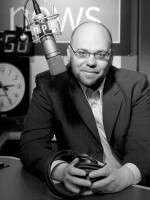MICHELE NORRIS, host:
From NPR News, this is ALL THINGS CONSIDERED. I'm Michele Norris.
MELISSA BLOCK, host:
And I'm Melissa Block.
The Senate had its first opportunity to weigh in on the issue of toy safety today. An Appropriations Subcommittee held a hearing to understand exactly why there have been so many recalls of toys made in China, and what the U.S. can do to ensure that toys are safer.
NPR's Adam Davidson reports.
ADAM DAVIDSON: Senator Dick Durbin says he called for today's hearing after he learned one of the toys he bought his grandson had been recalled. He was furious at the time and wanted to find out what went wrong. So he called in the CEOs of Mattel and Toys "R" Us, made them sit in front of dozens of photographers and TV cameras, and told them straight out what he really thinks of them - they're great guys.
Senator RICHARD DURBIN (Democrat, Illinois): Over the course of my congressional career, there have been times when I've been tough on businesses and I really have been heartened by and refreshed by the response of your industry to this crisis.
DAVIDSON: Mattel CEO Bob Eckert did apologize on behalf of his 30,000 employees. So if Mattel and Toys "R" Us are off the hook, maybe the Chinese will come in for some tough treatment. There were several high-ranking Chinese government officials in the hearing room, none were asked to testify, but Durbin says he had a long meeting with them this morning. They told him that the Chinese product safety agency is huge. It has…
Sen. DURBIN: …two hundred and ten thousand employees. They have eighteen hundred laboratories. So it is hard for me to preach to them about dedicating more resources to making sure that the products that they export are safe when you see what we are dealing with here in the United States.
DAVIDSON: The biggest problem, Durbin said, is that the U.S. government's own consumer product safety watchdog only has around 500 employees.
Sen. DURBIN: The Consumer Product Safety Commission has one person responsible for toy safety.
DAVIDSON: It's true. The U.S. government just has one guy focused on toy safety. Nancy Nord, the head of the CPSC, confirmed it. She said his name is Bob. We learned later he is Robert Hundemer. She says Durbin only has part of the story. The lab where toys are tested…
Ms. NANCY NORD (Acting Chairman, U.S. Consumer Product Safety Commission): …is a 1950's-era Nike missile testing site. We've got a number of different buildings. Some of them, I hate to admit, do not even meet code.
DAVIDSON: Nord and Durbin went back and forth comparing just how incapable the U.S. government is to test toys. At one point, one of Nord's commissioners, Thomas Moore, got up to leave for a dentist appointment.
Ms. NORD: Are you leaving?
Mr. THOMAS MOORE (Commissioner of the U.S. Consumer Product Safety Commission): Yeah, I've leaving.
Ms. NORD: Can I come with you?
(Soundbite of laughter)
Ms. NORD: It's a sad day when you'd rather go to the dentist.
DAVIDSON: While Nord got the toughest questions, she's unlikely to be too unhappy about today's hearing. All the senators present said they hope to give her commission a lot more money, which is fine, says Carter Keithley, the president of the Toy Industry Association, as long as the government doesn't try to replace the testing the private sector is already doing.
Mr. CARTER KEITHLEY (President, Toy Industry Association): Clearly, there is an important role for government to play as a watchdog and an enforcer, but history has proven the success of our reliance upon private sector safety initiatives.
DAVIDSON: He says the testing the toy industry does now is quite effective. Far less than one one-hundredth of a percent of U.S. toys have been found to be unsafe. He would like to see the government establish uniform testing rules, but he says it's crucial to let the private sector continue doing its own testing. Private companies, he says, are a lot better at this than any government lab.
Adam Davidson, NPR News, Washington. Transcript provided by NPR, Copyright NPR.






